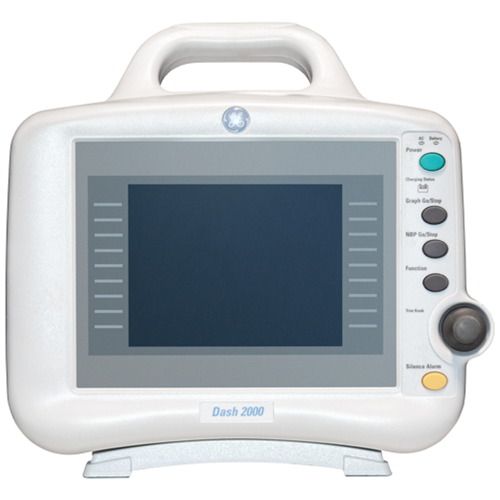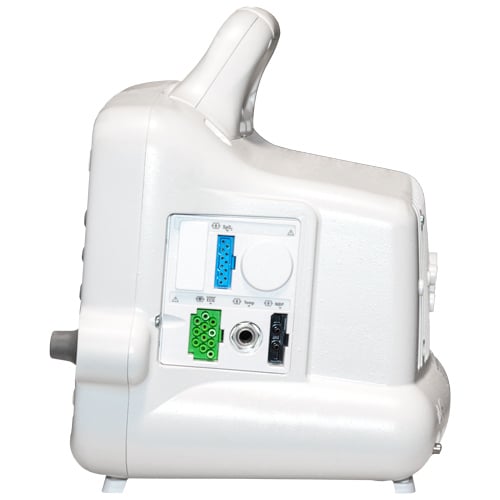“Datascope Passport XG” has been added to your cart. View cart
Description
Features:
- Versatile Use: The GE Dash 2000 can function as a standalone or transport patient monitor suitable for adult, pediatric, and neonatal patients.
- Monitoring Capabilities: It monitors various vital signs including ECG (Electrocardiography), NIBP (Non-Invasive Blood Pressure), impedance respiration, SpO2 (Oxygen Saturation), and temperature. Optionally, it can include a built-in recorder and invasive blood pressure monitoring.
- Display Options: Available with either a 5.8-inch color or monochrome display, providing clear visibility of vital signs data.
- Connectivity: Can connect to the GE Marquette Unity Network via Ethernet cable, facilitating data transfer and integration within the healthcare network.
- Battery Backup: Equipped with an internal battery pack that provides backup power for 2 to 3 hours in case of AC power interruption, ensuring continuous monitoring.
GE Dash 2000 Patient Monitor Specifications:
- Dimensions:
- Height: 8.5 in (21.5 mm)
- Width: 10.2 in (26 cm)
- Depth: 7.9 in (20 cm)
- Weight: 11.5 lbs (5.32 kg) (with battery pack and recorder)
- Display:
- Size: 5.8″ (16 cm) diagonal
- Type: Monochrome LCD (optional color LCD)
- Resolution: 320 x 240 pixels
- Number of Traces: 3
- Sweep Speed: 25 mm/sec
- Environmental:
- Cooling: Convection
- Heat Dissipation: 240 BTU/hr
- Battery: Nickel-cadmium (NiCd), 12 V, 2.0-ampere hours
- Operating Conditions:
- Ambient Temperature: 10 to 40 °C (50 to 104 °F)
- Relative Humidity: 5 to 95% at 40 °C (104 °F)
- Atmospheric Pressure: 700 to 1060 hPa
- Storage and Transportation Conditions:
- Temperature: -25 °C to 50 °C (-13 °F to 122 °F)
- Atmospheric Pressure: 500 to 1060 hPa
- Electrical:
- Power Requirements: 90 to 264 VAC, 50/60 Hz, 500 mA
- Power Consumption: 40 Watts (fully loaded)
- Monitoring Parameters:
- ECG Leads: I, II, III, V, aVR, aVL, and aVF
- Respiration Rate Range: 0 to 200 breaths per minute
- IBP Range: -25 mmHg to 300 mmHg
- Temperature Range: 0°C to 45°C (32°F to 113°F)
- NIBP Measurement Modes: Manual, auto, and start in different modes
- Pulse Oximetry Range: 50 to 100% for SpO2, 30 to 300 beats per minute for PPR
- Alarms:
- Categories: Patient status and system status
- Priority: 4 levels – crisis, warning, advisory, message
- Notification: Audible and visual
- Silencing: 1 minute, current alarm only
- Pause: 5 minutes in adult ICU mode, 3 minutes in neonatal ICU mode, and customizable in OR mode
- Volume: Default 70%, 70 dB measured at 1 meter















